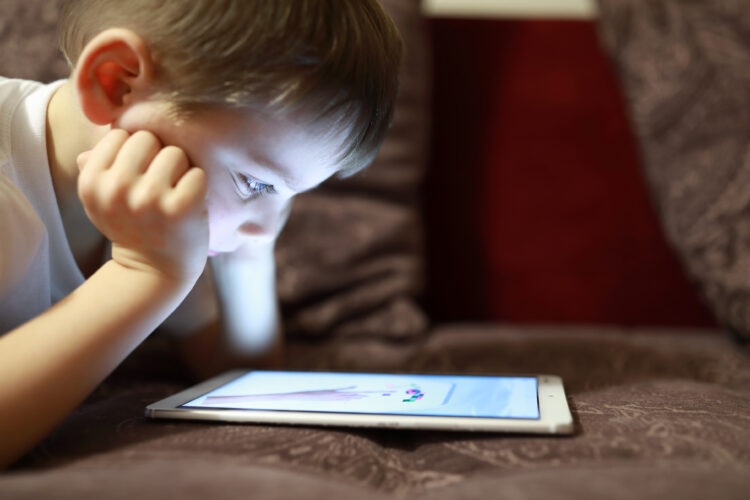EveryDay Learners: Prioritize play over screen time in a child’s early years

Adobe Stock
By being aware of how you and your child use your screens, you can create a loving relationship and help your child grow up healthy and strong.If you have a baby or a young child, you’ve probably wondered: what is the right age to let them have screen time?
Babies need loving, attuned relationships and a safe place to explore the real world, but they don’t need screens. They might be fascinated by screens, but they can’t understand what is happening on a screen or how it applies to the real world.
Children who had more screen time as babies and toddlers tend to be more aggressive, hyperactive, behind in language learning and worse at listening. For this reason, the American Academy of Pediatrics discourages screen time for children under the age of 2 except for video calls with loved ones.
By the time a child is preschool-age, they can learn from screens, relate to characters and imitate characters they like. It’s important that whatever content young children see on a screen isn’t too aggressive, fast or flashy. However, watching educational content with a parent or caregiver is actually associated with increased language skills. Prioritize high-quality, educational children’s content and talk to your child about what you see on the screen. Try not to give your preschooler more than an hour of screen time a day since young children also need to learn by playing in the real world and having social interactions.
Children sometimes use screens to calm down when they are feeling strong emotions. However, be mindful that this is teaching children to rely on screens to self-regulate. Teach your children a variety of ways to calm down, such as naming their emotions, noticing how the emotion feels in their body or taking slow, deep breaths.
Doctors recommend that there be no screens in a child’s bedroom and no screens for an hour before bed. Having a distracting, blue-light-emitting screen in a bedroom or around bedtime keeps a child awake when they should be asleep.
Too much screen time can also lead to health problems like eye problems, lack of activity and overweightness, so make sure to alternate activities rather than keeping your child in front of a screen all day. Encourage play, movement and outdoor time. Try movement games like Red Light Green Light or songs and dances like Patty Cake or Ring Around the Rosy.
Don’t forget to lead by example. Set up a special box or basket where you can put your phone. When your phone is put away, tell your child that you are doing this so you can focus just on them — then spend time doing whatever they want to do without distractions. This is a great way to make your child feel loved and prioritized.
By being aware of how you and your child use your screens, you can create a loving relationship and help your child grow up healthy and strong.
If you want more ideas of creative, fun and educational activities to do with your child, call or text Help Me Grow Utah, a free helpline for parents of young children, at 801-691-5322.
Avery Stonely is the EveryDay Learners operations coordinator at United Way of Utah County.

